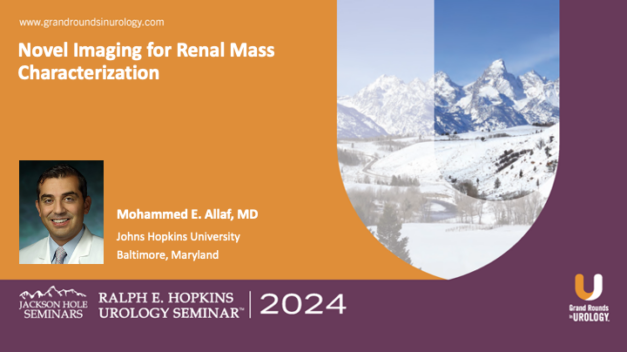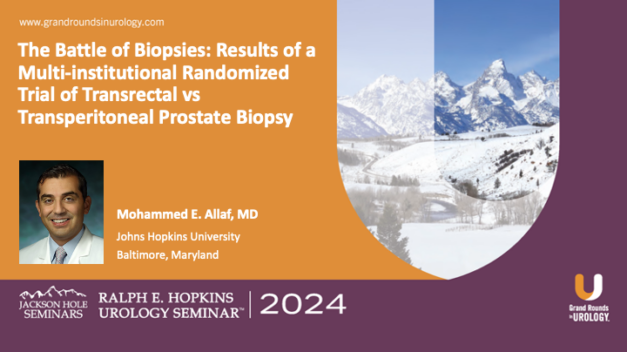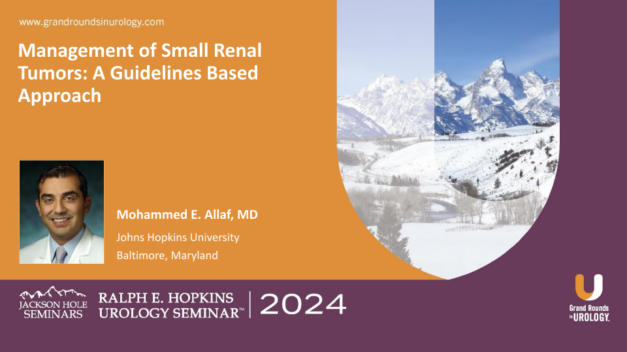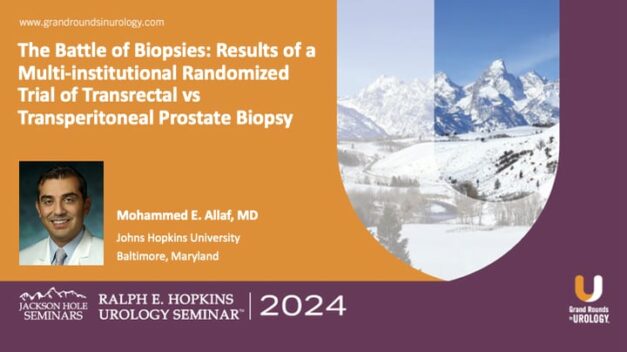Novel Imaging for Renal Mass Characterization
In this 18-minute presentation, Mohammed E. Allaf, MD, discusses novel imaging techniques for renal mass characterization, emphasizing advancements and their clinical implications. He outlines the traditional imaging modalities such as ultrasound, CT, and MRI, which, despite their utility, have limitations that lead to indeterminate findings, necessitating further diagnostic procedures.
Dr. Allaf highlights multiparametric MRI (mpMRI), contrast-enhanced ultrasound (CEUS), and PET imaging as tools in this advanced era of molecular imaging. For example, advancements in PET imaging contribute significantly to the management of renal cell carcinoma, enabling more accurate staging and potentially guiding targeted therapies. He underscores that radiologists, urologists, and oncologists must collaborate to interpret imaging results accurately and develop individualized treatment plans for patients.
Read More




